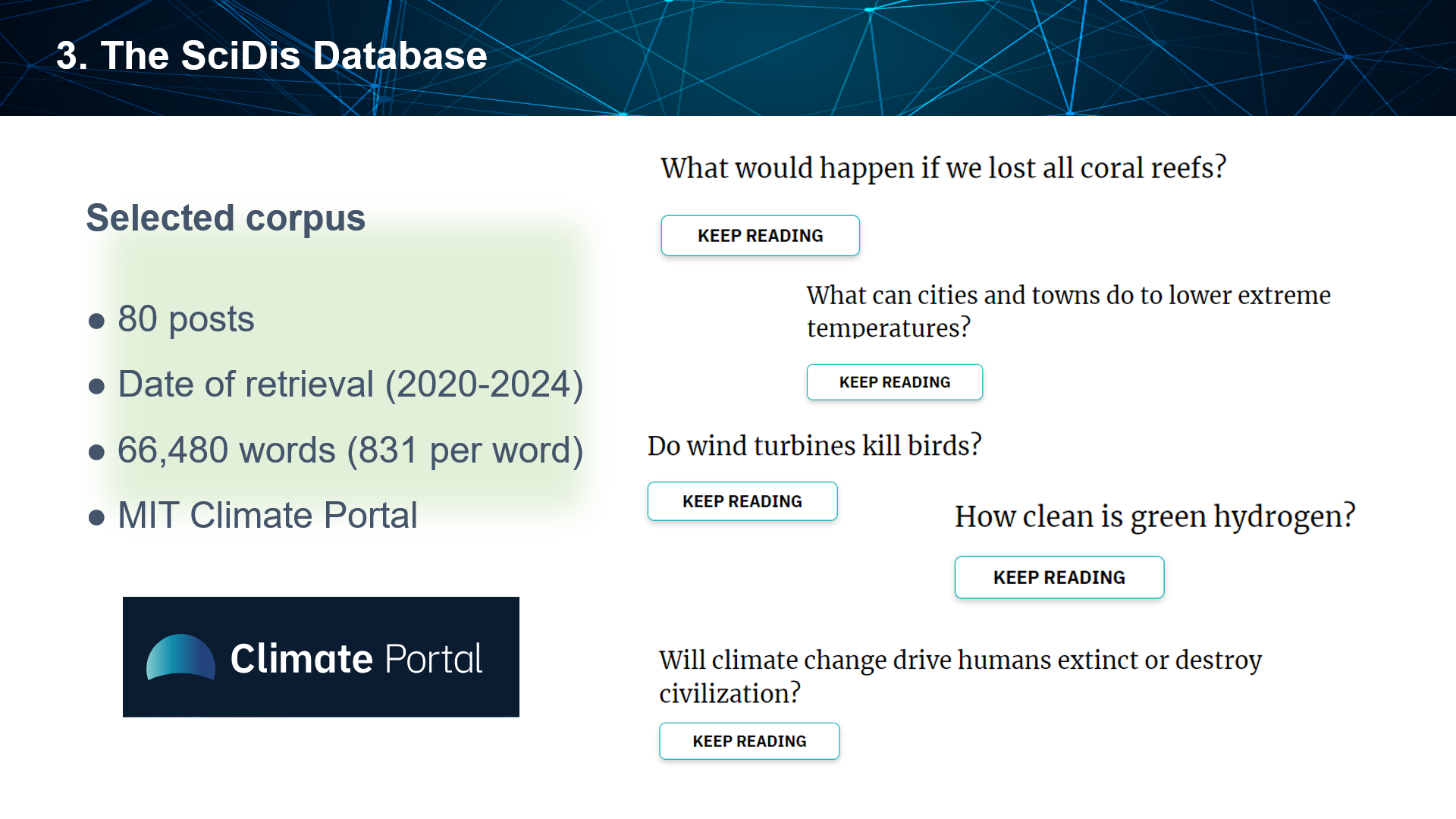AESLA 2024: Daniel Pascual analyses stance and engagement markers in Ask an Expert sites

Daniel Pascual attended the 41º Congreso Internacional de la Asociación Española de Lingüística Aplicada (AESLA), organized by the Universitat Politècnica de València (Valencia, Spain) on the 17th-19th April. As part of the panel on pragmatics and discourse analysis, he shared the results from his analysis of Ask an expert sites as emerging scientific digital practices. His presentation, entitled “Generic configurations and discursive features of Ask an Expert digital practices” proposed a tentative taxonomy of the most salient stance and engagement markers found in this inherently dialogic, digital environment. Interesting insights and future lines of research were found as regards the instantiation of knowledge recontextualization practices through the use of metadiscourse features such as attitude markers (namely formal variety of adjectival phrases) or code glosses among others.
You can read Daniel’s abstract below:
GENERIC CONFIGURATIONS AND DISCURSIVE FEATURES OF ASK AN EXPERT DIGITAL PRACTICES
Digital practices in professional spheres are constantly expanding. A remarkable case is found in digital scientific communication, especially using English for research dissemination purposes (Plo-Alastrué and Corona, 2023). Scholars and scientists increasingly embrace manifold communicative practices between expert and non-expert users, such as the practice Ask an Expert. Although notably centred around health disciplines, other fields of specialised knowledge are also covered in these texts, like environmental science. This paper analyses Ask an Expert practices in which user interaction is constructed upon climate change and sustainability. These texts are taken from the SciDis Database, which comprises various scientific dissemination digital practices. First, several generic configurations of the practice Ask an Expert are presented, including social media platforms, Q&A website models and bloglike posts. Then, I specifically dig into the discursive characteristics of these practices by researching a corpus of 80 texts from the MIT Climate Portal. Drawing on Hyland’s (2005) and Mur-Dueñas’s (2011) metadiscoursal frameworks, the function and frequency of attitudes and engagement markers (e.g., reader references, questions, asides) are analysed. Findings indicate that questions prompt users’ reflection about environmental problems and precede explanations of specialised information; reader references are mostly used in the first-person plural to foster a sense of collective responsibility; and polarised adjectives abound in the corpus, primarily in comparative forms and accompanied by adverbs, to convey the experts’ evaluative voice in their answers. In all, the study uncovers discursive mechanisms shaping science communication in English between experts and general users in the field of environmental sustainability.
